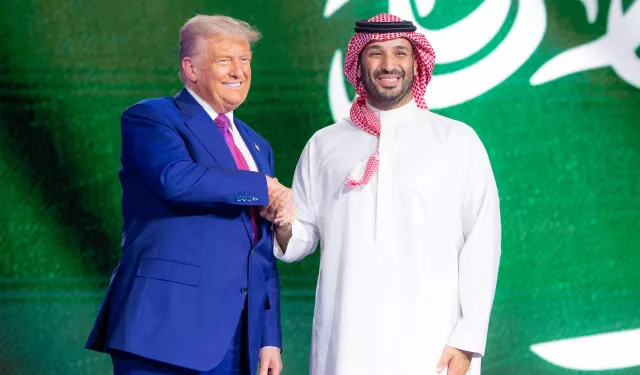The United States has confirmed it will sell advanced F-35 stealth fighter jets to Saudi Arabia, a landmark move that could reshape regional military balances and test Washington’s commitments to Israel’s qualitative military edge. The announcement comes as Crown Prince Mohammed bin Salman visits Washington for the first time in seven years.
President Donald Trump said he had approved the deal, declaring, “I will say that we will be doing that,” when asked if he would sell the jets to Saudi Arabia. “We’ll be selling F-35s.”
“We will be selling the fighter jets to Saudi Arabia,” and adding that his administration is also considering a broader security agreement with what he called “a great ally,” noting that the Saudis “have got to like us very much ”
Mohammed bin Salman’s trip marks his first visit to the US since the 2018 murder of Saudi critic and Washington Post columnist Jamal Khashoggi, a killing that sparked global outrage.
In February 2021, a declassified US intelligence report concluded that Crown Prince Mohammed bin Salman authorized the 2018 operation in Istanbul to “capture or kill” the Saudi journalist and US resident. The assessment pointed to his sweeping authority over Saudi Arabia’s security and intelligence apparatus, which he had held since 2017, as central to its conclusion.
Mohammed bin Salman has denied ordering the killing, but later acknowledged it took place “under my watch” as the kingdom's de facto leader.
Today, during a full day of diplomacy at the White House, the crown prince is set to meet Trump in the Oval Office, join a lunch in the Cabinet Room, and attend a formal dinner.
A Deal that could alter regional military balance
The F-35 sale—potentially providing Riyadh with up to 48 jets—would be the first time the US supplies its most advanced fifth-generation fighter aircraft to Saudi Arabia. Until now, Israel has been the only country in the Middle East operating the F-35.
The deal represents “a significant political shift” and could “change the military balance in the Middle East,” testing Washington’s policy of preserving Israel’s “qualitative military edge,” Reuters said.
The sale forms part of a broader $142 billion US–Saudi arms cooperation agreement reached earlier in 2025. While Trump’s approval moves the process forward, it still requires export licensing and congressional review. The Pentagon and lawmakers remain wary of potential technology leaks, particularly given Saudi Arabia’s deepening ties with China.
Two days before the visit, Axios reported that Israel wants the US to condition the F-35 sale on Saudi normalization with Israel.
According to unnamed Israeli officials cited by the outlet, Israel does not oppose the sale itself but insists it must be tied to “full normalization.”
“Unlike the supply of F-35s to Turkey that we strongly oppose, we are less concerned about such weapons system in Saudi Arabia if it's part of a regional security cooperation as part of the Abraham Accords, like we have with the United Arab Emirates,” an Israeli official told Axios.
Another Israeli official said that approving the sale without securing diplomatic concessions would be “a mistake and counterproductive.”
Saudi ambitions
Alongside the aircraft deal, Mohammed bin Salman is seeking wider commitments from Washington, including security guarantees, access to artificial intelligence technologies, and progress on a civilian nuclear program.
The visit also builds on a Saudi pledge of $600 billion in investment, made during Trump’s May visit to Riyadh earlier this year, which he hopes to capitalize on during the latest round of talks.
The F-35 sale—central to Riyadh’s efforts to upgrade its airpower—still awaits formal contracting, export approvals, and congressional oversight. Delivery timelines and jet configurations have not yet been disclosed.
If finalized, the deal would cement a new phase in US–Saudi defense relations, sharpen Israeli strategic concerns, and potentially redefine the balance of power in the Middle East.
